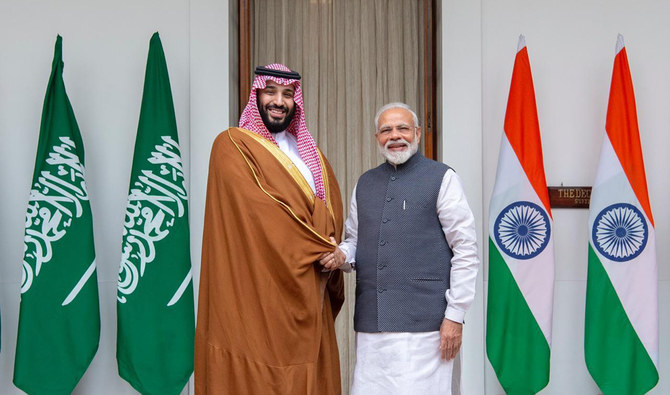Prime Minister Narendra Modi’s third visit to Saudi Arabia on April 22, 2025, though cut short due to a terror attack in Jammu and Kashmir, marked a critical juncture in India’s foreign policy toward West Asia. As part of a broader regional strategy, this visit reaffirmed Saudi Arabia’s role as a cornerstone in India’s evolving diplomatic, security, and energy engagements with the Middle East.

Strategic Recalibration Amid Global Uncertainty
Speaking to INDIA’s WORLD, Dr. Ausaf Sayeed, former Indian Ambassador to Saudi Arabia, emphasized that Modi’s visit symbolized a “significant evolution” in India’s West Asia approach. Historically centered on oil imports and diaspora welfare, India’s engagement with the region has now matured into a multifaceted strategic alliance. This includes high-level cooperation in defence, clean energy, digital technologies, and infrastructure development.
“The visit reflects strategic pragmatism,” said Dr. Sayeed. “It highlights India’s capacity to engage with multiple powers—Saudi Arabia, Iran, Israel—while maintaining its principle of strategic autonomy.”
India as a Bridge Between East and West
The timing of the visit was critical. West Asia remains volatile, with active conflicts in Israel-Palestine, tensions in Syria and Lebanon, and continued Houthi disruptions in the Red Sea. Moreover, uncertainty over U.S.-Iran nuclear negotiations and the larger backdrop of U.S.-China and Russia-Ukraine tensions have reshaped the global geopolitical order.
Against this backdrop, India’s ability to maintain balanced ties positions it as a stabilizing force. Modi’s visit sent a message that India is ready to assume a more prominent role in global diplomacy and peace-building.
Saudi Arabia: A Pivotal Partner in India’s Global Ambitions
This was Modi’s 15th visit to the Gulf and his third to Saudi Arabia since 2014. It highlights the enduring and growing partnership between New Delhi and Riyadh. As part of its Vision 2030 economic diversification strategy, Saudi Arabia has sought deeper partnerships with Asian powers, particularly India. Both nations now cooperate on a wide range of issues—counter-terrorism, food security, green hydrogen, digital transformation, and cultural exchange.
Even though the itinerary was cut short following the tragic April 22 terror attack in Pahalgam, Jammu and Kashmir, both sides reaffirmed their strategic commitment. The mutual resolve to deepen cooperation in energy security, defence collaboration, and counter-terrorism operations was reiterated at the highest levels.
Energy Diplomacy and Connectivity as Cornerstones
India’s push for clean energy partnerships and strategic oil reserves has found a willing partner in Saudi Arabia. The two nations are collaborating on green hydrogen initiatives, solar power ventures, and supply chain resilience.
Moreover, initiatives like the India-Middle East-Europe Economic Corridor (IMEEC) promise to revolutionize trade routes, linking Indian ports to the Gulf and further to Europe. Saudi participation in such initiatives highlights the country’s strategic relevance in India’s global outreach.
Resilience Amid Crisis: A Testament to Bilateral Maturity
While the Pahalgam terror incident cast a shadow over the visit, it also underscored the strategic resilience of the India–Saudi relationship. “The strength of the relationship lies in its depth,” noted Dr. Sayeed. “Despite the security setback, both countries showed an unwavering commitment to long-term cooperation.”
This resilience is crucial as India navigates its path in a rapidly changing global order—marked by multipolarity, economic realignments, and regional flashpoints.
Conclusion: A New Chapter in India–Saudi Relations
Prime Minister Modi’s 2025 Saudi visit may have been brief, but it carried deep diplomatic significance. It reaffirmed India’s growing stature in global affairs and showcased its capacity to act as a pragmatic, stabilizing force in West Asia. As India continues to pursue its multi-alignment strategy, Saudi Arabia is poised to remain a vital pillar in its foreign policy framework.
Going forward, India’s engagement with West Asia—grounded in economic cooperation, security alignment, and cultural diplomacy—will likely become even more critical in shaping the balance of power in the region and beyond.
Category: International Affairs, Indian Foreign Policy, Middle East Diplomacy, Strategic Relations
Tags: Narendra Modi, Saudi Arabia, West Asia strategy, India Saudi relations, energy diplomacy, India defence policy, Ausaf Sayeed, Modi foreign visits, counter-terrorism, Middle East geopolitics